The Green's Hill Novellas Read online
The Green’s Hill Novellas
By Amy Lane
A Green’s Hill Collection
Companion to the Little Goddess Series
Welcome to Green’s Hill, a small, secret collective of the fey, furry, and undead, existing unnoticed in the California foothills for over a hundred and fifty years. Whether your passion is exotic were-animals, angels, elves, or vampires, you can find them here—although things are changing on the hill.
Bound by love and honor, Cory, Green, and Adrian work to give their followers a home—but they have no idea that the effects of their true love will spread like ripples in a pond.
Be prepared for the unexpected, and ready for enchantment—you never know who will be awakened to the romantic possibilities of a vampire, a sorceress, or a pansexual elf who finds power in the force of love.
The anthology includes:
Litha’s Constant Whim
Whim believes himself to be the least powerful sidhe at Green’s Hill: he is as constant as a bumblebee in a hurricane and as faithful as a stray breeze. Whim’s prince believes there is more to him than that and on Litha, the night of the summer solstice, sends Whim into the mortal world where he strives to give a piece of himself to others.
It is on Litha that Whim meets Charlie, a young, desperate human who steals a kiss. Whim steals one back and, in turn, craves another taste of this extraordinary man. Their vows to return next Litha and finish what they started launch a thirteen-year tradition of celebration between the mortal and the immortal, between love and patience, that is sustained by Whim’s driving, faithful compulsion to love and keep his human close to his heart.
I Love You Asshole!
Once upon a time, he had a last name and a pulse—and he was straight. But Marcus Desarno meets his demise in an explosion of broken glass and twisted metal, and when he wakes up, he’s a blood-sucking, sexually ambiguous, card-carrying member of Green’s Hill, the northern California refuge for the fey, the terminally furry, and the undead. It’s a tough transition, but gentle Marcus eventually finds contentment serving Green and his consort, Adrian.
Then Marcus meets arrogant, vain, and competitive Phillip and feels compelled to make him a vampire to save his irritating life. Now Marcus has an unwanted roommate and a crush that won’t quit, and Phillip has the motive, means, and libido to bang anything with or without a pulse in a three-hundred-mile radius. It’s a good thing vampires live forever, because it might just take that long for Marcus to convince the love of his unlife that gender lines are for the living and that the person driving you crazy might be the one your heart would beat for—if it could beat at all.
Guarding the Vampire’s Ghost
For four millennia, Shepherd, Angel of Repentance, and Jefischa, Angel of the Fourth Hour of Dark, have worked as a team to provide heavenly assistance to those who call their names. Shepherd’s work has made him dark and dour, but he’s determined to protect Jefischa from all of the terrible pain the mortal world has to offer. Now an accident of divine politics has put Adrian, a twice-dead vampire, in heaven, and angels have been falling to Earth to engage in forbidden activities ever since. Shepherd doesn’t know how, and he doesn’t know why, but he’s heaven-bent on keeping the impressionable Jefischa out of Adrian’s clutches. But how is it that someone who was supposedly not human can teach two angels so much about the best of humanity? And how is it that—as long as he has Jefi by his side—no duty on earth or in heaven is as pleasurable as guarding the vampire’s ghost?
Author’s Note
Just so you know, you should really listen to Death Cab for Cutie’s “Marching Bands of Manhattan” when you read this. Trust me. Put it on loop. It’ll hit you right in the feels.
Amy
Whim—Offerings
GREEN’S HILL was a magical faerie commune that rested in an unspecified location in the Northern California foothills. Green was the leader, a beautiful sidhe (or elf) with hip-length, butter-colored hair, a penchant for mortals, and what should have been a minor gift that he’d parlayed into a major one. He had the gift of sex and the ability to gain magical power from the sharing of flesh and the whisper of skin on skin. Using this power, Green managed to gather every supernatural being—shape-shifters, vampires, lower fey, sidhe, all of them—under his aegis and protection. Everybody loved Green and his vampire consort, Adrian, including Whim.
Whim was the second-youngest sidhe on Green’s hill, and possibly the least powerful one.
Smaller fey—pixies, nixies, sprites, gnomes, goblins, trolls, brownies—reproduced like rabbits. They were everywhere, hiding in the corners of houses like dust, but sidhe, the big elves, did not, as a whole, procreate a lot. They had sex frequently (for them it was as natural as eating or breathing), but they didn’t actually produce offspring. Whim’s parents were both sidhe, and in the tumultuous, terrifying (for them) trip overseas on one of the vast sailing ships of the 1800s, they had lost control of their will and their power. Will and power were a sidhe’s birth control. Whim was the result.
The youngest sidhe on Green’s hill was Bracken. Bracken was (as most elves are) exactly like his name. Fierce and sturdy, prickly, somber, and strong. The terrible, beautiful, painful story of Adrian, Green, Bracken, and Cory—the very mortal sorceress who loved (and was loved by) them all—was the stuff of songs. Whim, however, was not the type of elf that songs or stories were written about. He was beautiful, as were all of his people—with triangular, perfect features; wide, limpid eyes; a full, wide mouth; a clean, proportional nose; and pointed ears—but other than that, he was perfectly average. His hair, which hung—like most of the sidhe’s—down to his waist, tended to change color according to his mood, like one big silky mood ring, and he had the attention span of one of the lower fey, but that was why he was named “Whim.” He was as insubstantial as the breeze and as reliable as a bumblebee in a hurricane.
At least that was what everybody believed about him, with the exception of Green and Adrian. Adrian, who, as a vampire, had once been mortal, not only told Whim that there was something of substance, of passion, inside his mild, mercurial self—Adrian also introduced Whim to the world of mortals.
Mortals were Whim’s secret passion.
Many of the sidhe—including Whim’s parents—avoided the mortals, including the mortals-that-had-been, like the vampires and the werecreatures. Sidhe traditions held that their shorter life spans made them incapable of understanding what true life and love and beauty and sacrifice were all about.
We’re sidhe, Whim. I know we’ve relocated to this wild place, but that is because our leadership in England was corrupt. We need to maintain all of the mystique and magic of being sidhe. Try to remember that as you see the other elves running wild with the rabble.
Whim didn’t care. Adrian had been a mortal once, and so he thought there must be something beautiful and amazing about mortals. It was that simple. Whim hadn’t loved Adrian as a lover, although they’d shared flesh on occasion. It had been Adrian’s friendship that Whim had loved. Adrian, quick with a joke, quick to blush if he’d just fed, quick to listen, to understand, to forgive. He had forgiven Whim for being an elitist snob, and Whim had ceased to be one. He had forgiven Whim for being afraid to go outside the hill, and Whim had ceased to be afraid. He had forgiven Whim for once forgetting that they were in the middle of sex and starting to sing a bawdy song that Adrian had taught him, and Whim tried very hard to pay attention during sex after that, because he learned that mortals-that-had-been, especially, got a little irritated when their partners forgot that sex was being had.
It had been Adrian’s influence that had sent Whim outside the hill for Litha, the time of the vampires’ greatest weakness and of the elves’ gr
eatest strength:
“Oh, for Christ’s sake, mate, get the hell out of here.” Adrian had been born in the poorest stretch of London, or so his accent still proclaimed even till the day of his second death. He always claimed not to remember. “Your parents will be doing what your people do during this time. I’ve taught you how to drive, and we have plenty of cars that have been treated so you can drive them. Your glamour is solid, and unlike Bracken, you can keep your temper for more than two and a half seconds at a stretch.”
Adrian and Bracken weren’t monogamous at this time, but there had been a period in which they’d been exclusive with the exception of Green. As he talked about his lover, his brother of the heart, his best friend, Adrian’s fine-boned face arched wickedly, and he smiled. He loved Bracken—he’d die for him—but that didn’t mean that he and Whim couldn’t appreciate the vagaries of such a young sidhe. The mercurial Bracken often lost control of his glamour in front of humans. He was practically too young to be let out of the hill. Whim, at sixty, should have no trouble. The Goddess’s children all looked young and beautiful, but they had an eternity—if they chose one—to learn about the world. Whim was just old enough to cut loose on an unsuspecting human populace and just young enough to appreciate an adventure.
But still, Whim looked at Adrian, who, at almost six feet tall, was tall for a human and short for a sidhe, and felt a pucker at his brow. Adrian had moonlight-pale hair and sky-spangled blue eyes, and he was almost more beautiful as a vampire than most sidhe—a thing Whim’s parents would have said was impossible. Adrian was different than mortals. The world could not possibly offer everything Adrian said it did.
Adrian saw Whim’s adoration and shook his head. “There is somebody out in the big world who will give you back that look full measure, Whim. Don’t you want to see who that is?”
“Yes,” Whim sighed, “but if I do find them, I will probably forget who it is I’m looking for as soon as I see their face.”
Adrian laughed then. Whim’s attention had never been very faithful, it was true. Most of the other sidhe concentrated on some sort of art or science and mastered it. But as soon as Whim picked up a book of poetry, he was singing a ballad he’d made up himself. He’d tried to master the harp and ended up suspending paper birds from harp strings. Once he’d instigated sex with a female vampire on the cusp of dawn, forgetting that they died with the birth of the sun. The woman hadn’t minded, especially because Whim had forgotten what he was supposed to be doing at sunrise and rolled out of her bed and went to find something else to occupy himself—it was considered a case of no harm, no foul. Even among a species considered eccentric in its proclivities and belief system, Whim was an anomaly. To say he was cursed with a butterfly mind was to say cow shit was cursed with methane gas. The two simply went hand in hand, and that was the nature of things.
“Don’t worry, Whim,” Adrian said then, kindly. “We will know it’s for real when you can remember a name.”
So Whim had done it, had gone outside the hill to experience full Litha magic, just for Adrian. That first night he had met a mortal woman—an unwary mortal woman, to be outside her husband’s home and wishing on the shortest night of the year. Whim had spoken softly to her, had heard her heart’s desires, and had touched her bare skin freckled by starlight. He had taken her sweet body in the country quiet. When the morning came, he’d dressed her and put her to sleep next to her husband, with nothing but a pleasant yearning to convince her it had been anything more than a dream.
The experience—the flesh, the power of the solstice night, the mortal woman’s sweetness and painful want—had been exquisite. Whim resolved to do it again, and so he had. Every Litha, he had gone into the mortal world and found a mortal who wanted him and only him, even if it was only for the shortest night of the year.
One night, nearly thirty Lithas later, he was wandering along the railroad track in a deserted back field in Auburn. It was there that he met Charlie, and Litha changed for Whim forever.
He started out his wander in a fit of melancholy. The little clearing was on top of a rise, on the other side of a graffiti wall that separated the railroad tracks from the small, low-rent suburb on the other side. Suburb, graffiti wall, even the glaring spaceship of lights below the rise, all of them were new. The area had changed—humans had become more prevalent, and this great, cold-iron track cut less and less through areas of field and forest and more and more through the backs of suburbs and horse pastures—and Whim missed the emptiness. He’d seen the great rabbit warrens of large homes on small plots of land that the humans had been building, and he hated them. Soon, he thought unhappily, Green’s hill and the surrounding protected forests would be the only place his kind could walk the earth.
Then he saw a youth in tight jeans and a tank top under a flapping great trench coat, balancing on the cold-iron beam in the starlight, and he forgot his private vendetta against progress and remembered why he was out in the Litha dark.
Litha was the cusp of light and dark, the crux of life and death, the longest day and shortest night of the year. The earth was in full burgeoning strength, and the Goddess’s shining ones literally—and with no help from their own magic—tended to glow like beacons of sex and touch. Litha was the night Oberon could seduce Titania with a commoner who had been partially turned into an ass.
As the youth on the railroad tracks looked up and caught sight of Whim walking toward him wearing nothing but jeans and a cloak of color-shifting hair, the boy’s mouth curved into a plump little O and his eyes, so dark a chocolate brown as to be opaque in the moonlight, opened as wide as the sky.
Whim looked at him and felt his lips curve into a smile. The boy was like Litha itself: on the cusp of things. He was not tall, certainly not as tall as Whim, who was in the middle of six and seven feet, but not even as tall as Adrian. His chest and jaw would be broad when he filled out, but now, in his late teens, he was all shoulders and elbows, collarbones and angled jaw and bold, assertive nose. His jeans were torn and bleached on purpose, and his tank top was tight to show off the rebellious rings in his nipples and his navel, but that look….
In spite of the sneering of the teenager and the skepticism of the nascent man, the look on his face had been all joyful child, and Whim was charmed.
He drew nearer.
“Be careful you don’t get stuck,” Whim said gently as the boy played with his feet in the railroad ties. The boy rolled his eyes, and Whim rolled his back. “I am only saying that the train is due very soon, and I cannot touch the rails or the spikes to help you.”
That brought the boy up short. “Why can’t you touch the rails?” he asked, and Whim looked down at his bare feet and wiggled his toes. The boy’s eyes followed.
“The cold iron burns my skin,” Whim told him honestly. It was true. Here, on Litha, Whim was caught in all three of a sidhe’s vulnerabilities: They drew power from the earth and hence detested coverings for their feet. They were allergic to the cold iron of the humans (the reason all of Green’s cars were treated with a salt and herb wash before the sidhe were allowed to drive them). And they could not lie. They could if they really wanted to, but they ended up afflicted with nausea, cramps, and a blinding headache until they burst out with the truth, and Whim had never been tempted to test that particular weakness.
“And don’t believe what you hear about foot size and penis size,” Whim added for good measure.
“I’m sorry?” There was a curious blink, and Whim felt he should explain.
“Humans believe that foot size is proportional to penis size. You were looking at my feet. They are very large. In fact,” Whim said as he held up a forearm, “they are the exact length from the crease of my arm to the edge of my wrist, and so are yours. I know, because I have a friend who makes socks.”
“Burns?” asked the boy curiously, and it was Whim’s turn to blink. “You said the cold iron burns,” the kid enunciated patiently. “That’s why I was staring at your feet.”
&nbs
p; Whim nodded and shrugged and made a very rash decision, which would have surprised no one who knew him. It was Litha. If he breathed in deeply, he could set a shield between himself and this man-child that would deflect bullets and keep even the subtle, warm breeze at bay. With such a shield, he could stand on the railroad tracks and let the train batter him like a wave batters a beach ball and walk away without a scratch or even a blister from the iron itself.
On such a night, with such power brushing his skin, what could this boy do to him, even with the truth?
“My people are allergic to the iron,” Whim told him, and his glamour, which hadn’t been very firm in the first place because he’d been caught unaware, dropped completely, on a whim. The youth looked up into his triangular features, his wide-set eyes, and saw what he was ready to see.
He must have been ready to see the truth, because his arm rose and his fingertip moved immediately to Whim’s curved ears, and he stroked gently, like a child stroking a rabbit’s nose. Whim shuddered sensually and purred. The ears of most sidhe were sexually sensitive, and his were no exception.
“You’re real,” the boy whispered, his voice barely audible in the night quiet. In the rushing darkness, the shushing of the freeway could be heard. It was nearly three miles away.
“You’re taking liberties I haven’t given you,” Whim told him, but he cocked his head and moved his body sinuously anyway. It was his ear. It just felt so damned good. “Of course I’m real.”
The boy dropped his hand reluctantly, and Whim sighed and straightened his body. “It is dangerous out here for unwary boys. I’m an elf, and even I know that not all strangers mean well.”
The boy shrugged, pulled his foot from the space between the two railroad ties, and hopped off the track altogether. “Folks don’t care much where I am,” he said.

 Super Sock Man
Super Sock Man Safe Heart (Dreamspun Desires Book 102)
Safe Heart (Dreamspun Desires Book 102) Slow Pitch
Slow Pitch School of Fish
School of Fish Shades of Henry (The Flophouse Book 1)
Shades of Henry (The Flophouse Book 1) Ethan in Gold
Ethan in Gold Hidden Heart
Hidden Heart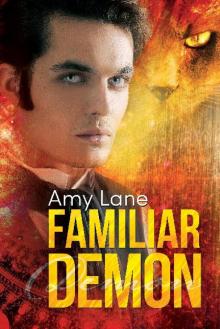 Familiar Demon
Familiar Demon Shortbread and Shadows
Shortbread and Shadows Silent Heart
Silent Heart Shortbread and Shadows (Dreamspun Beyond Book 41)
Shortbread and Shadows (Dreamspun Beyond Book 41) All the Rules of Heaven
All the Rules of Heaven Shades of Henry
Shades of Henry Homebird
Homebird Under the Rushes
Under the Rushes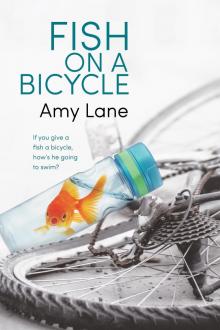 Fish on a Bicycle
Fish on a Bicycle Warm Heart
Warm Heart The Muscle
The Muscle The Bells of Times Square
The Bells of Times Square![Jack&Teague [& Katy] stories 1-5 Read online](http://i1.bookreadfree.com/i/03/19/jackandteague_and_katy_stories_1-5_preview.jpg) Jack&Teague [& Katy] stories 1-5
Jack&Teague [& Katy] stories 1-5 Wounded, Volume 1
Wounded, Volume 1 Paint It Black
Paint It Black The Virgin Manny
The Virgin Manny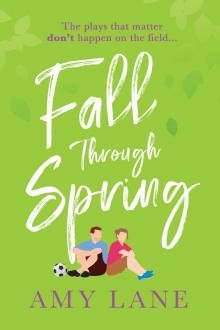 Fall through Spring
Fall through Spring Clear Water
Clear Water If I Must Lane
If I Must Lane Stand by Your Manny
Stand by Your Manny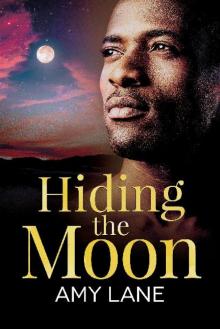 Hiding the Moon
Hiding the Moon Freckles
Freckles Chase in Shadow
Chase in Shadow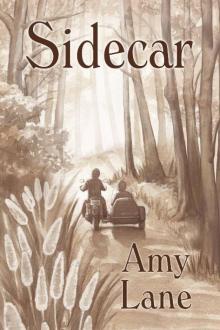 Sidecar
Sidecar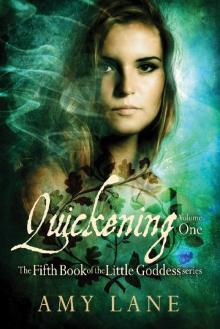 Quickening, Volume 1
Quickening, Volume 1 Black John
Black John Bobby Green
Bobby Green Winter Ball
Winter Ball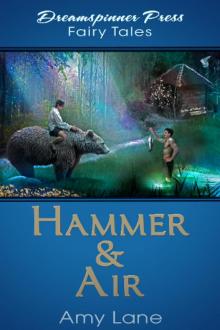 Hammer & Air
Hammer & Air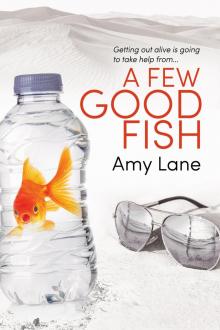 A Few Good Fish
A Few Good Fish Dex in Blue
Dex in Blue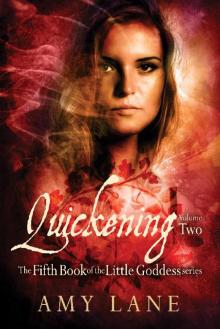 Quickening, Volume 2
Quickening, Volume 2 A Fool and His Manny
A Fool and His Manny Manny Get Your Guy (Dreamspun Desires Book 37)
Manny Get Your Guy (Dreamspun Desires Book 37)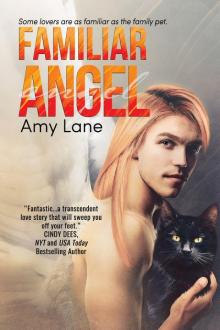 Familiar Angel
Familiar Angel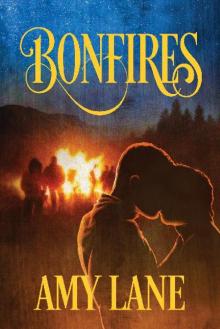 Bonfires
Bonfires The Locker Room
The Locker Room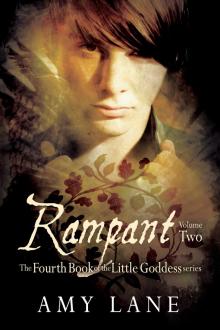 Rampant, Volume 2
Rampant, Volume 2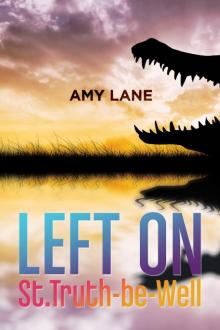 Left on St. Truth-Be-Well
Left on St. Truth-Be-Well A Solid Core of Alpha
A Solid Core of Alpha Red Fish, Dead Fish
Red Fish, Dead Fish Summer Lessons
Summer Lessons Country Mouse
Country Mouse City Mouse
City Mouse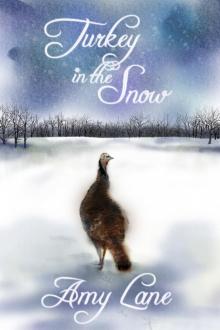 Turkey in the Snow
Turkey in the Snow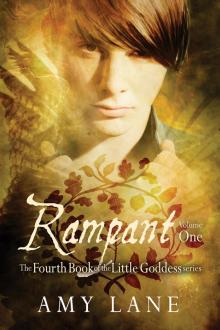 Rampant, Volume 1
Rampant, Volume 1 Bitter Moon Saga
Bitter Moon Saga Candy Man
Candy Man Crocus
Crocus Green's Hill Werewolves, Volume 2
Green's Hill Werewolves, Volume 2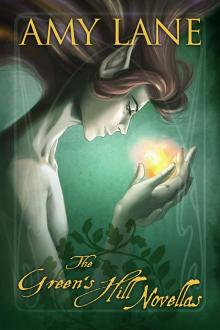 The Green's Hill Novellas
The Green's Hill Novellas